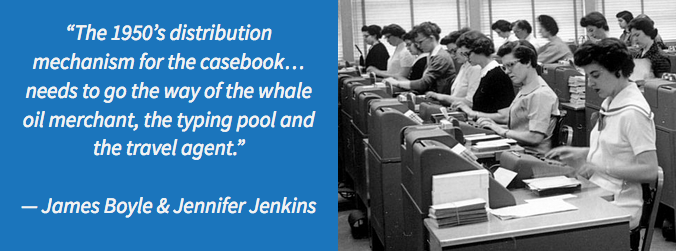
Just in time for the start of the new academic year, Authors Alliance featured a series of Q&As with our members on the topic of open access and innovative academic publishing models. In celebration of Open Access Week, we’ve collected what these authors had to say about the benefits of making their works openly accessible.
Eric von Hippel (MIT) on the benefits of making his books, Free Innovation, The Sources of Innovation, and Democratizing Innovation, openly accessible:
“The increase in readership I have experienced by going OA is really worth it to me—it makes me very happy. Evidence to date is that about 10 times more eBooks are downloaded than print copies are sold, so I guesstimate that I am reaching about 10 times more people with the ideas I find exciting than I could have done in the pre-OA era.”
“It especially makes me happy that now teachers can assign even a single chapter of one of my books in a class in a developing country if they wish, without worrying about burdening students with any purchase costs.”
Read the full interview with Professor von Hippel here.
James Boyle and Jennifer Jenkins (Duke) on the benefits of openly publishing their law school casebook, Intellectual Property: Law & the Information Society – Cases & Materials:
“…[T]he benefits of openness come out in other surprising ways. For example, visually impaired students have told us they really appreciate an open electronic text that can be customized using their favorite programs—to produce a machine-generated audiobook, for example, in whatever format they choose.
“[I]t is striking how much tangible benefit in terms of citation, influence, and so on that [making our book openly accessible] has yielded. When it comes to open access to scholarship, doing good can be very compatible with doing well.”
Read the full interview with Professors Boyle and Jenkins here.
Barton Beebe (NYU) on the benefits of publishing Trademark Law: An Open Source Casebook as an open access work:
“I sort of love that so many students are using my book and that they didn’t have to pay for it. That’s worth more to me than whatever royalties I would get through the for-profit model.”
“I think the main result of using the open access model is that a lot more people have used the book and so maybe it has had more influence than it otherwise might have.”
Read the full interview with Professor Beebe here.
For more information about open access, including our guidebook and more success stories, check out our Open Access resource page.
Discover more from Authors Alliance
Subscribe to get the latest posts sent to your email.
